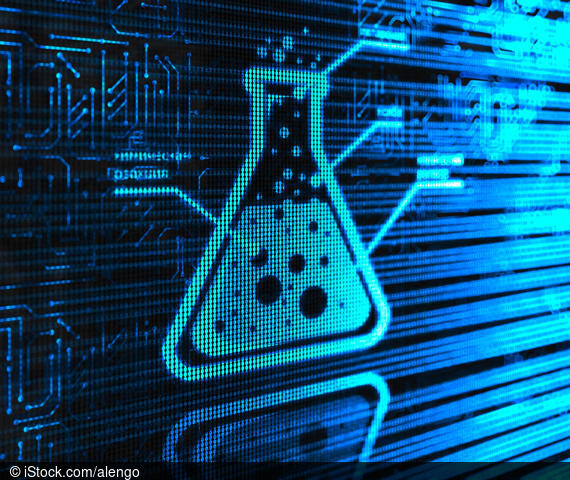Chemical Industry Shows Potential for Digitalisation
ResearchDigital technologies already play a significant role in production processes in Germany’s chemical and pharmaceutical industries. There are nonetheless considerable opportunities for further digital innovation among German businesses in the sector. In addition, many companies in the chemical industry are facing major challenges in the fields of education and further training as well as data protection. These are the key findings of a study on innovation indicators for the chemical industry in 2018 (“Innovationsindikatoren Chemie 2018”) with a focus on digitalisation, which was conducted by the Centre for European Economic Research (ZEW) and the Leibniz University Hannover’s Center for Economic Policy Studies (CWS), on behalf of the German Chemical Industry Association (VCI).
The results show that digital applications are already very widespread in the industry. More than 80 per cent of businesses have incorporated digital applications into their production and sales processes – whether to digitally link elements of the production process, to harmonise production and logistics, or to improve interaction between customers and suppliers. This trend is only going to continue in future. VCI Director Johann-Peter Nickel says: “In the coming years, most companies in the industry – the majority of which are SMEs – are planning to intensify their use of digital solutions, particularly in the area of digital customer interaction.”
With regard to production processes and research and development (R&D) in companies, the study shows that new digital products, services, and business models offer a range of opportunities for further innovation. Though the industry already makes use of highly optimised production systems and is therefore extremely efficient, digital technologies could enable even greater productivity gains. These might be achieved, for example, through the introduction of digital supply chain management, or through the use of digital facility management systems or modular facilities to enable more flexible production. In addition, digital technologies can enable new R&D approaches: big data and artificial intelligence, for example, may allow companies to more rapidly simulate the effects of new chemicals or implement more sustainable chemical production methods.
Tighter security requirements for data protection
Alongside the great opportunities the digital transformation offers Germany’s chemical and pharmaceutical industries, the study also highlights two major challenges that will need to be addressed going forward. “Firstly, digitalisation not only transforms business practices and R&D processes; it also poses new challenges for employees, and by extension for educational and further training systems, which will need to include greater digital-learning provision,” explains Dr. Christian Rammer, deputy head of the ZEW Research Department “Economics of Innovation and Industrial Dynamics” and leader of the project. “Secondly, intensified digital technology usage goes hand in hand with more stringent data protection requirements, particularly for SMEs.”
In concrete terms, this means that businesses will need to better protect their trade secrets and sensitive customer information from hacking attacks and industrial espionage. Further challenges facing the German chemical industry include the sluggish pace of broadband expansion and the lack of IT specialists and IT expertise among employees.
As part of the study, the researchers also made a cross-country and industry comparison of the German chemical industry’s research and innovation performance (without considering the pharmaceutical industry), based on multiple indicators.
For more information please contact
Dr. Christian Rammer, Phone +49 (0)621-1235-184, E-mail christian.rammer@zew.de
